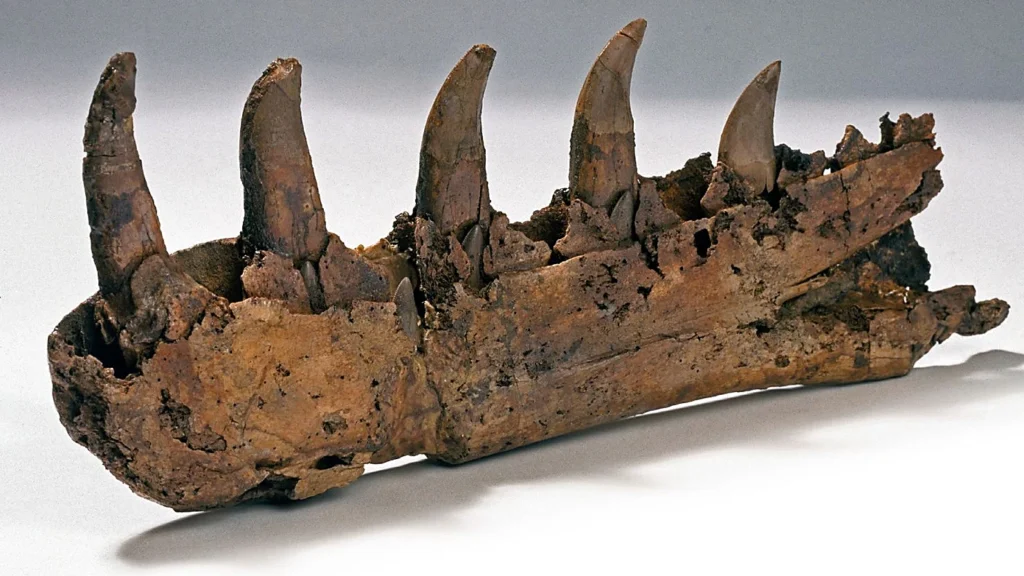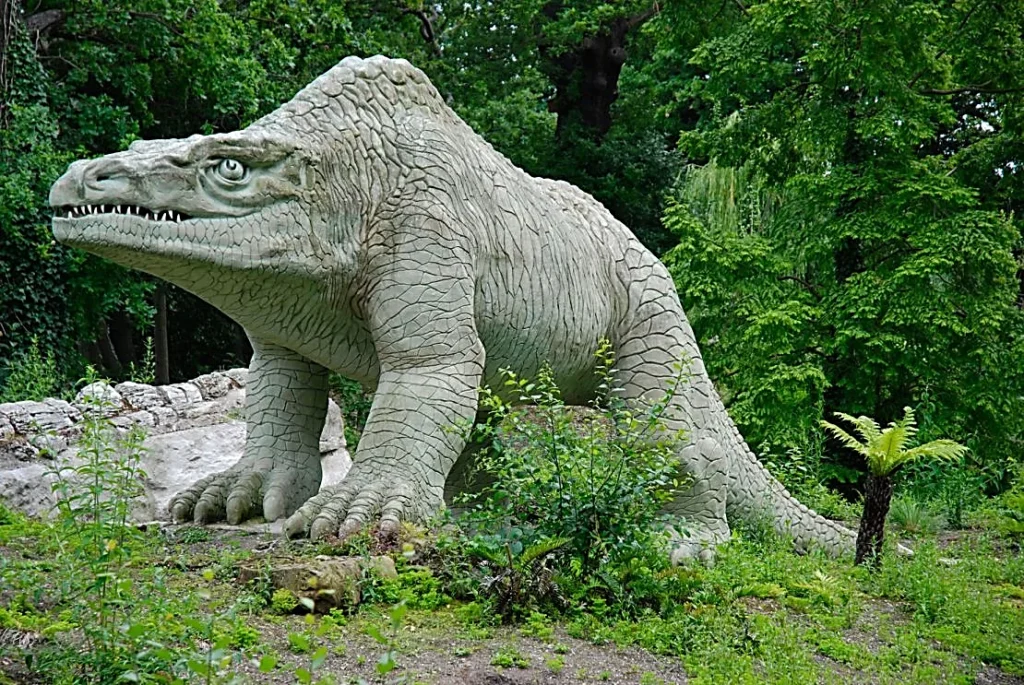Recently, the world celebrated 200-year anniversary of the first scientific naming of a dinosaur, reflecting on the contributions of William Buckland in defining and naming the first-known dinosaur, Megalosaurus.
About the Megalosaurus:
- Megalosaurus is a genus of large theropod dinosaur that lived during the Middle Jurassic period, approximately 166 to 164 million years ago.
- It is considered one of the first dinosaurs ever discovered and named.
- It lived during the Middle Jurassic period, a geologic time span that lasted from approximately 174 to 163 million years ago.
Characteristics:
- It is characterized by bipedal stance, 3-toed limbs, and typically carnivorous diet.
- It had a large head with sharp teeth, a powerful jaw, and strong hind limbs.
Discovery:
- In 1824, William Buckland presented the first scientific description of Megalosaurus and coined the term “Megalosaurus.“
- William Buckland believed it was a carnivore, and possibly amphibious.
Evolution of Paleontology:
- Paleontology is the scientific study of life that existed prior to, and sometimes including, the start of the Holocene epoch.
- It includes the study of fossils to classify organisms and study their interactions with each other and their environments.
- Dinosaurs thrived for 165 million years.
- Birds are direct descendants of dinosaurs, with over 10,000 bird species known today.
- Fossils from China in the 1990s confirmed dinosaurs had feathers, linking them to modern birds.
- Melanosomes in fossils help determine original colours of feathers, showcasing the present golden age of paleontology.
Other key facts:
- The term “dinosaur” was coined by anatomist Richard Owen in 1842.
- The term “dinosaur” was coined based on shared characteristics identified in Megalosaurus, Iguanodon, and Hylaeosaurus.
Ref: Source
| UPSC IAS Preparation Resources | |
| Current Affairs Analysis | Topperspedia |
| GS Shots | Simply Explained |
| Daily Flash Cards | Daily Quiz |




